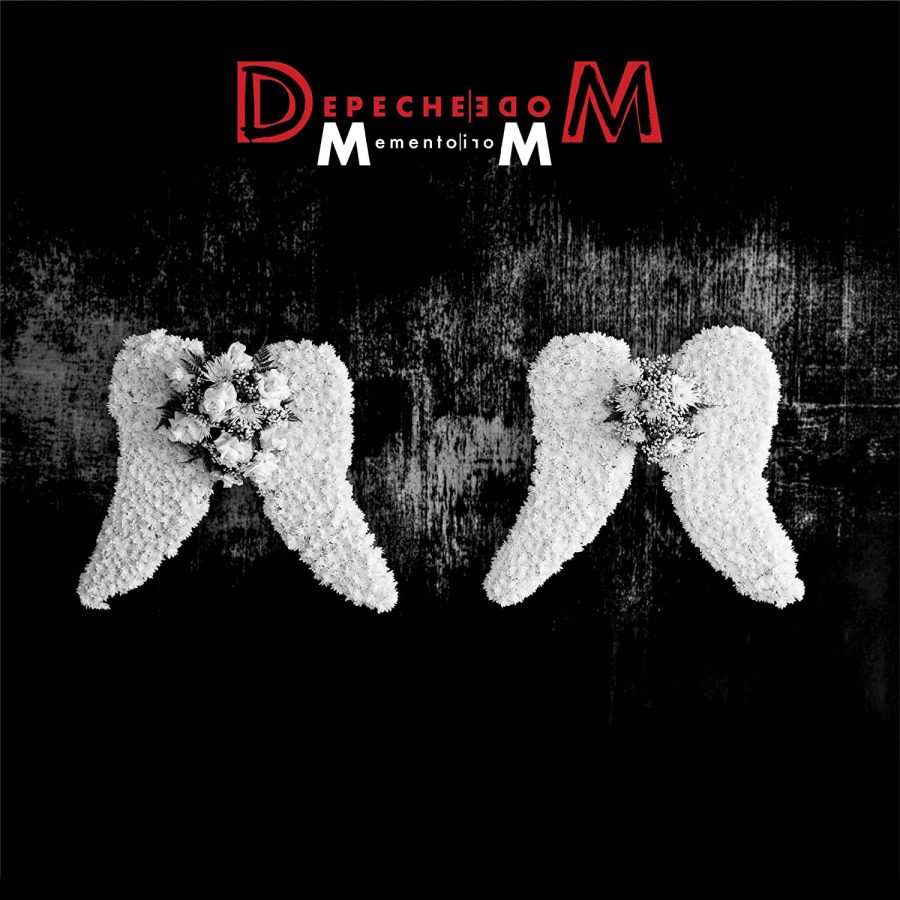Depeche Mode confronts death in “Memento Mori”
March 31, 2023
Since their formation in 1980, Depeche Mode has gone through many members, some of which who dealt with serious life issues along the way, and despite these, their music has remained surprisingly consistent over the years. Very few of their albums were ever able to be considered “flops,” no matter what was going on in the background. In its latest album, Depeche Mode’s resilience has paid off. Releasing after the death of original band member Andy “Fletch” Fletcher, “Memento Mori” is a melancholic and powerful reflection on time and mortality, while recognizing the band’s successes throughout more than four decades.
While Depeche Mode’s next album was rumored to be in the works since 2020, Fletcher’s death made many doubt if it would ever be released. “Fletch” was often documented as a sort of peacemaker in the group, and while not having any songwriting credits for the band, he handled much of its business matters when a manager was not hired. However, duo Dave Gahan and Martin Gore have come together in some of their strongest songwriting collaborations yet.
Opening song “My Cosmos is Mine” begins with typically dark and grating synths quickly reminding you to what band you’re listening. Written by Martin Gore, the lyrics begin with the confident tone of two extremely accomplished musicians now in their 60’s. They don’t want any new ideas and want no one to mess with their past, shown in lines like “Don’t mess with my mind/Don’t question my space-time” and “Don’t knock down my shrines/ Don’t alter my headlines.” This is suddenly undercut in the bridge by cries that sound almost desperate. “No war/No more,” “no pain, no shrouds” and “No final breaths, no senseless deaths” all turn the message to new light, asking everyone to respect each other’s ideas as well. Gahan and Gore just want to be respected at this point in their lives and don’t want to have the world burn.
Soon following the opener comes the near-hit song of the album, “Ghosts Again.” On top of being my favorite song of the album, it most closely reflects the main message of the album: death is inevitable and it is coming for all of us. Despite its grim message, the song takes a somewhat hopeful sound with positive, yet descending chord progressions. While largely abstract, Gahan’s vocals show acceptance in the lines “Time is fleeting/See what it brings,” proving the duo is aware of their mortality and ready to face it whenever it might come. No matter what happens, they know “we’ll be ghosts again.”
After being around for so long, Depeche Mode couldn’t help make some references for its core fans. “People Are Good” and “Never Let Me Go” both share the first halves of their titles with two absolute titans of Depeche Mode singles: “People are People” and “Never Let Me Down Again.” Despite sharing half of their names, the new songs are much different from their origins. “People Are Good” takes on a much more cynical view of humanity. While the original song questioned why we all hated each other so much, this loses much of its hope with lines like “Keep fooling yourself/That everyone cares.” It is unclear whether the band’s trust of people has been lost, but it definitely has been tested. “Never Let Me Go” considers a different drug than its counterpart: the high of admiration and the anxiety of losing it. The lyrics start with a swaggering bravado: “I’m waiting for your love/I know you’ll want me.” However, it slowly slips into uncertainty with “Bit my lips through the torment/Please fall into my arms,” until Gahan gives a crying shout: “Never let me go!” As the band has aged, there has always been the risk of losing all popularity, and they show that anxiety here.
It is impressive how Depeche Mode has delivered yet another strong, poignant album after losing a core member and existing for so long. In fact, Gahan and Gore have delivered one of my favorite Depeche Mode albums since “Playing the Angel.” The much more minimalistic sound production, thanks to James Ford, harkens back to Violator, making me extremely hopeful for Depeche Mode’s future. However, if the title stands true and this is Depeche Mode’s sendoff album, then I couldn’t have asked for a better farewell. I give this album a 5 out of 5.


